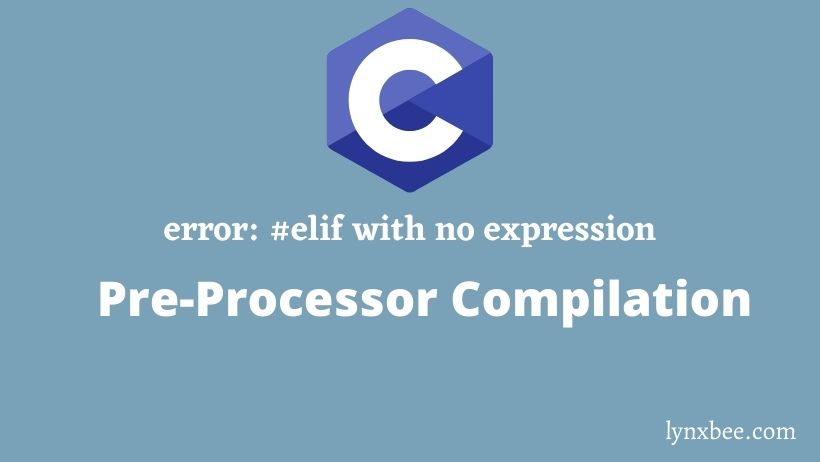When we want to make a compile time decisions to enable some code and disable other, #ifdef and #elif helps us to achieve this, but sometimes we get the error as mentioned in this post.
We written a demo code as below,
#include <stdio.h>
#define ENABLE_SUBTRACTION_CODE
int main(void) {
int a = 10, b = 5;
#ifdef ENABLE_SUM_CODE
return a + b;
#elif ENABLE_SUBTRACTION_CODE
return a - b;
#else
printf("No active code");
#endif
return 0;
}when we compiled the above C code, which tries to enable subtraction code by defining macro ENABLE_SUBTRACTION_CODE at the top, we got following error,
helloworld.c: In function ‘main’:
helloworld.c:10:31: error: #elif with no expression
10 | #elif ENABLE_SUBTRACTION_CODE
| ^Solution :
This error is because #elif also expected the expression check as we have done with #ifdef.
hence, when we change below line of code
#elif ENABLE_SUBTRACTION_CODEto
#elif defined(ENABLE_SUBTRACTION_CODE)So, the final working code looks as,
#include <stdio.h>
#define ENABLE_SUBSTRACTION_CODE
int main(void) {
int a = 10, b = 5;
#ifdef ENABLE_SUM_CODE
return a + b;
#elif defined(ENABLE_SUBSTRACTION_CODE)
return a - b;
#else
printf("No active code");
#endif
return 0;
}